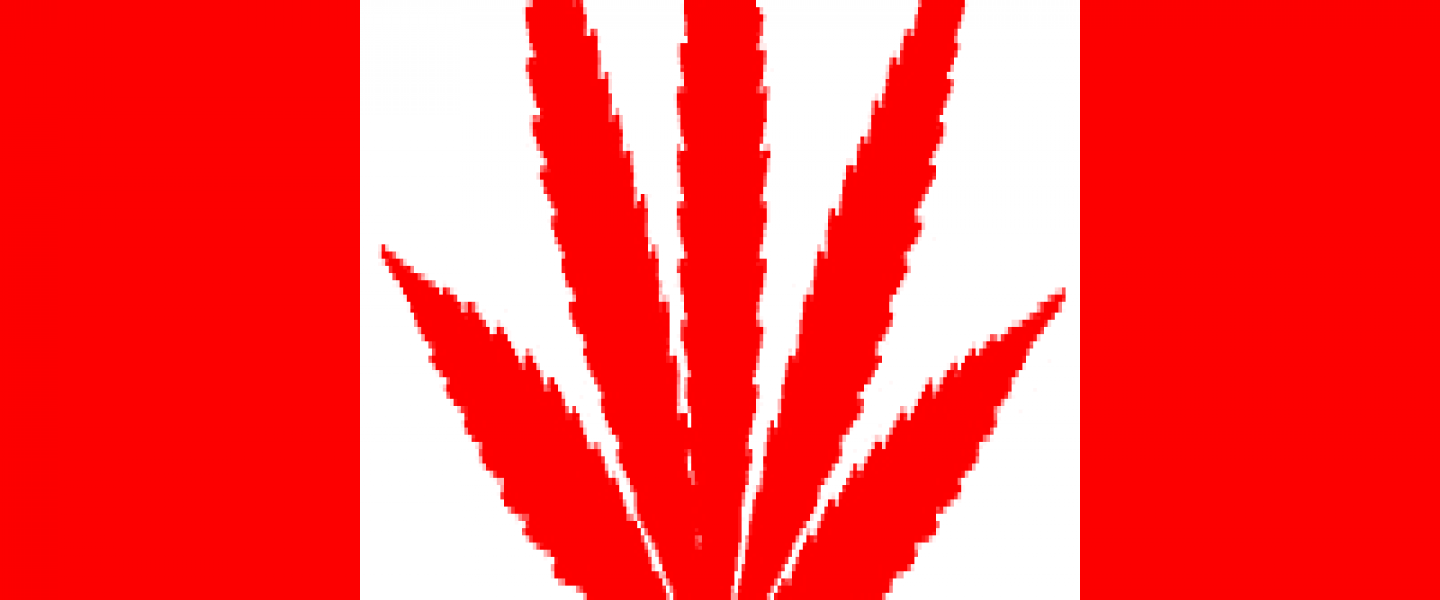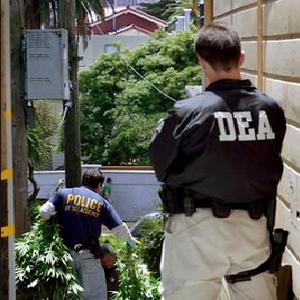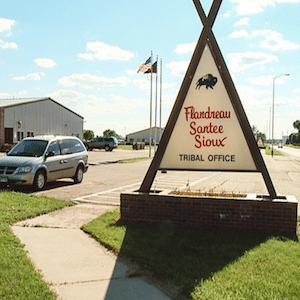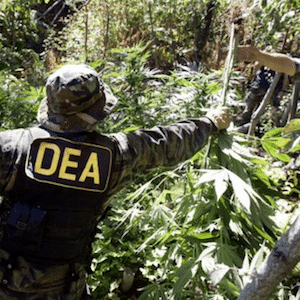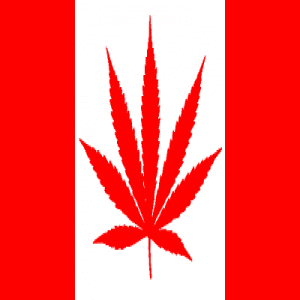 Cannabis in Canada: The Most Important Marijuana Stories of 2011
Cannabis in Canada: The Most Important Marijuana Stories of 2011
It was a very big year for marijuana in Canada. Before people start looking forward to 2012, and what it has in store for marijuana policy in Canada, let’s take a look back at what went on in the world of Canadian marijuana.
CANNABIS CULTURE – Two Thousand and Eleven was a reefer roller-coaster ride for the Canadian cannabis community, with some soaring peaks and subterranean valleys. We go over the Highs and Lows of 2011.
It was undoubtedly a year of significant change. There were some very positive developments, some very negative ones, and others that are still hard to gauge at this point. Seemingly, for each two steps forward we have taken, we have jumped four steps back — but there is still room left to get our footing.
Here are Canada’s top pot stories of 2011:
Celebrations of the Cannabis Culture
Canadians sure do love their weed. This fact becomes more than obvious to residents of major cities like Vancouver and Toronto during a growing number of annual marijuana-themed protest rallies, festivals, marches, and expos.
April 20 — the infamous 4/20 — is a day to celebrate cannabis freedoms. This herbaceous holiday started in 1995 in Vancouver and has since spread around the globe like a … well … like a weed. This year Vancouver packed a pot-loving crowd of over 15,000 onto the grounds of the downtown Art Gallery, making it the largest in size and scope the city has ever seen, and featured live music and speakers like NDP Deputy Leader Libby Davies. Toronto and other Canadian cities joined the global party and smoked their lungs out as well.
Massive crowds with red flags and red eyes showed up for other events including Cannabis Day on July 1 and the Global Marijuana March and Toronto Freedom Festival in May.
In June, Toronto played host to the second-annual installment of the country’s largest marijuana trade show, the Treating Yourself Expo, which was put together with class this year by TY Magazine publisher Marco Renda. In Vancouver, hundreds attended the first-annual CannaMed Fair for three days in February. Even Saskatoon, Saskatchewan got in on the action with the first-annual Prairie Medicinal Cannabis Cup in July.
It would be damn hard to stop the momentum of these events, so we can only assume bigger, better, and more celebrations are just around the corner.
R. v. Mernagh
Undoubtedly, one of the biggest pot stories of the year is the tale of Matt Mernagh, a medical marijuana user and CC blogger who was busted growing without a medical licence. Mernagh uses medical marijuana to relieve the symptoms of fibromyalgia, scoliosis and seizures, but was for years unable to convince a doctor to sign the required paperwork to make him legal.
Ontario Superior Court Justice Donald Taliano ruled in Mernagh’s favour, granting him a personal exemption, striking down Canada’s laws prohibiting the possession and production of marijuana, and giving the federal government 90 days to fix the country’s medical marijuana program.
Taliano agreed that Canadian doctors had effectively boycotted the program and found that their “overwhelming refusal to participate in the medicinal marijuana program completely undermines the effectiveness of the program.”
The government, of course, appealed the ruling and a stay was placed on the 90-day deadline, giving the government more time to build its case. The proceedings are ongoing and Ontario Court of Appeal dates have been scheduled for March 2012.
Marc Emery Supporters Ask Obama For a Pardon
In September, U.S. President Obama’s White House gave Americans (and Canadians, evidently) the chance to engage him in a conversation on the topic of their choice. The We the People website was launched and Obama promised to give a response to any submitted petition that received more than 5,000 signatures.
Supporters of Canadian Marc Emery, founder of the B.C. Marijuana Party and former publisher of CC (you know, the guy who was extradited and locked away in a U.S. penitentiary for selling marijuana seeds to fund political activism), sprung into digital action and submitted a petition asking Obama to pardon the Prince of Pot.
The petition quickly received the required number of signatures with the help of Tommy Chong and the mainstream press, but sadly, Obama’s response was a refusal to respond.
New Activist Groups Join Front Lines of the Drug War
Several new groups dedicated to educating the public and reforming Canada’s drug laws debuted this year, and one of them got off to a very impressive start.
Stop the Violence B.C., a group made up of legal experts, doctors, law enforcement officials, university professors, and other professionals, announced their existence in October and released a damning report showing the adverse affects of pot prohibition. The group commisioned an Angus Reid poll which found that “69 per cent [of British Columbians polled] think arresting marijuana producers and sellers is ineffective and B.C. would be better off taxing and regulating marijuana.”
The group also convinced four former Vancouver mayors to band together as a unified force against marijuana prohibition. The current Vancouver mayor Gregor Robertson soon followed suit, voicing his support for Stop the Violence B.C. and calling marijuana prohibition a “failed policy.”
Former Vancouver Drug Czar Donald MacPherson is now director of the Canadian Drug Policy Coalition, a group that launched in aims to “transform our approach to alcohol, tobacco, and other drugs” and lobby the government to base drug policy and legislation on “evidence, human rights, social inclusion and public health.”
Another activist group, the Canadian Association of Medical Cannabis Dispensaries, a union made up of some of the largest medpot providers in the country, launched the “Dispensaries are Indispensable” campaign, to help medical marijuana users, legal or not, express their support for dispensaries as safe sources of cannabis and request that Health Canada recognized them as legal providers. The group hopes to play a role in shaping Canada’s changing medical marijuana landscape.
Dana Larsen and the NDP
The New Democratic Party made significant gains in Canada’s federal election this year, winning enough seats to form the official opposition but not enough to block the Conservative Party from forming a majority.
The NDP, the most progressive party in the country and one of the most friendly to the pot community (see Libby’s speech), voted at their National Convention to support Vancouver’s supervised injection site and called for a drug policy based on “a non-criminal, regulatory approach to substance use.”
Dana Larsen, former (founding) editor of Cannabis Culture Magazine, founding director of the Vancouver Cannabis Dispensary, and one of the most recognized pot activists in Canada, ran a well-publicized leadership campaign for the B.C. NDP. Larsen earned endorsements from celeb stoners like Tommy Chong and Rob Van Dam, and even did a campaign tour at local head shops. Though he didn’t win, Larsen brought needed attention to the issue of marijuana prohibition in B.C., making significant inroads and forging relationships with B.C. NDP members.
Changes to Health Canada’s Medical Marijuana Program
In June, an official at Health Canada leaked claims that Health Canada was getting out of the medical marijuana business completely. Details later emerged that the government of Canada planned to completely overhaul its Marihuana Medical Access Regulations (MMAR). The proposed changes include:
- Eliminating personal production licences, ending legal personal home marijuana grows altogether
- Eliminating patient identification cards, putting patients at risk of police action
- Building a system of private for-profit marijuana growers and sellers who would provide to all patients in Canada, severely limiting the range of quality strains of medicine
- Continuing the unconstitutional “doctors as gatekeepers” system
- Failing to address the many compassion clubs and medical marijuana dispensaries currently open across Canada
Activists and legal experts criticized the so-called “improvements” as misguided and said they would only add to current problems with the system.
“We applaud the belated recognition that the government’s medical marijuana program needs substantial reform,” said Kirk Tousaw, Executive Director of the Beyond Prohibition Foundation. “This program has failed patients, producers and distributors of medical cannabis for a decade and needed to be scrapped. Unfortunately, the new proposals miss the mark and will fail to address many of the existing issues with the program.”
Right to Religious Cannabis Use Denied by Courts
Cannabis is one of the most diverse plants known to man and can be used for seemingly endless purposes, whether as a psychoactive substance, a medicine, a nutritional food product, a fuel, hemp building material and textiles — the list goes on and on.
Some Canadians, like cannabis historian Chris Bennett, believe cannabis is the Tree of Life as described in the Christian Bible and other sacred texts of various religions, and use the plant as a religious or spiritual sacrament to help them get in touch with a higher power or their inner-selves.
The religious defense was used in court early this year by members of the Church of the Universe who had been arrested for trafficking through their church. The judge did not agree with Rev. Brother Peter Styrsky and Rev. Brother Shahrooz Kharaghani, who argued marijuana laws are unconstitutional and violate the freedom of religion provisions of the Charter of Rights and Freedoms.
In 2009, Bennett, who is also a member of the Church of the Universe and has written three books on the subject of cannabis and religion, applied for an exemption from the Controlled Drugs and Substances Act that would allow him seven grams of marijuana a day as a religious sacrament.
After being denied by the Minister, Bennett filled for a judicial review in Federal Court and an order to compel the issuing of an exemption.
In mid-November of 2011, Bennett and his lawyer Kirk Tousaw put up a spectacular fight in federal court with an air-tight case and well-executed argument.
Sadly, the eccentric (I’m being nice with that word) Judge Michel M.J. Shore threw everyone in the courtroom for a strange loop by repeating nonsensical statements and focusing on narrow issues that seemed completely irrelevant to the case.
After another day of bizarre behavior (which you can read about in detail at this link) the judge ruled against Bennett, accepting virtually the entire argument of government prosecutors. He agreed that Bennett’s use of marijuana was secular and that granting him an exemption might cause the “detriment of the collectivity” of the Canadian people.
The Crackdown on Cannabis Users Continues
The Canadian War on Marijuana expanded on all fronts in 2010, and Stephen Harper’s Conservative government has been doing everything in its power to continue the trend in 2011 and beyond.
According to data released by Statistics Canada in July of 2011, over 58,000 Canadians were arrested in 2010 for marijuana possession. That’s up a huge 14% over the previous year and works out to over 54% of all drug arrests in the country.
In a series of raids and arrests, the RCMP shut down multiple dispensaries in British Columbia. This sent a chill through the pot community and has discouraged would-be dispensary operators from straying outside the bounds of major cities with municipal police forces.
Conservative Majority and Bill C-10
The most important marijuana-related story of 2011 is not a good one.
As part of Canada’s ongoing crackdown on the cannabis community, the Conservative Party has proposed harsh anti-drug legislation that will cost untold billions and put thousands of non-violent Canadians behind bars. Bill C-10, which includes mandatory minimum prison terms for minor pot offenses and other legislation the Cons were unable to pass with a minority government, is expected to pass with their majority control of the House of Commons and Senate. It has already been passed by the House of Commons but must be passed be the Senate to become law. Another expectation: an enormous negative impact.
This ominous omnibus bill, ironically titled the Safe Streets and Communities Act, will actually make us less safe.
The Conservatives can’t claim ignorance or argue the facts on these points — experts from varied fields have spoken unanimously and they all agree (and have agreed for years) that the Drug War is a failure. Meanwhile, the Conservatives have promised to not ‘govern by statistics’ and ignore the fact that the crime rate in Canada is at its lowest since 1973.
There’s still time to speak up and be heard by governments on all levels. Click here to find out how to help stop Bill C-10 before it really is too late.
– courtesy of Cannabis Culture, written by By Jeremiah Vandermeer


